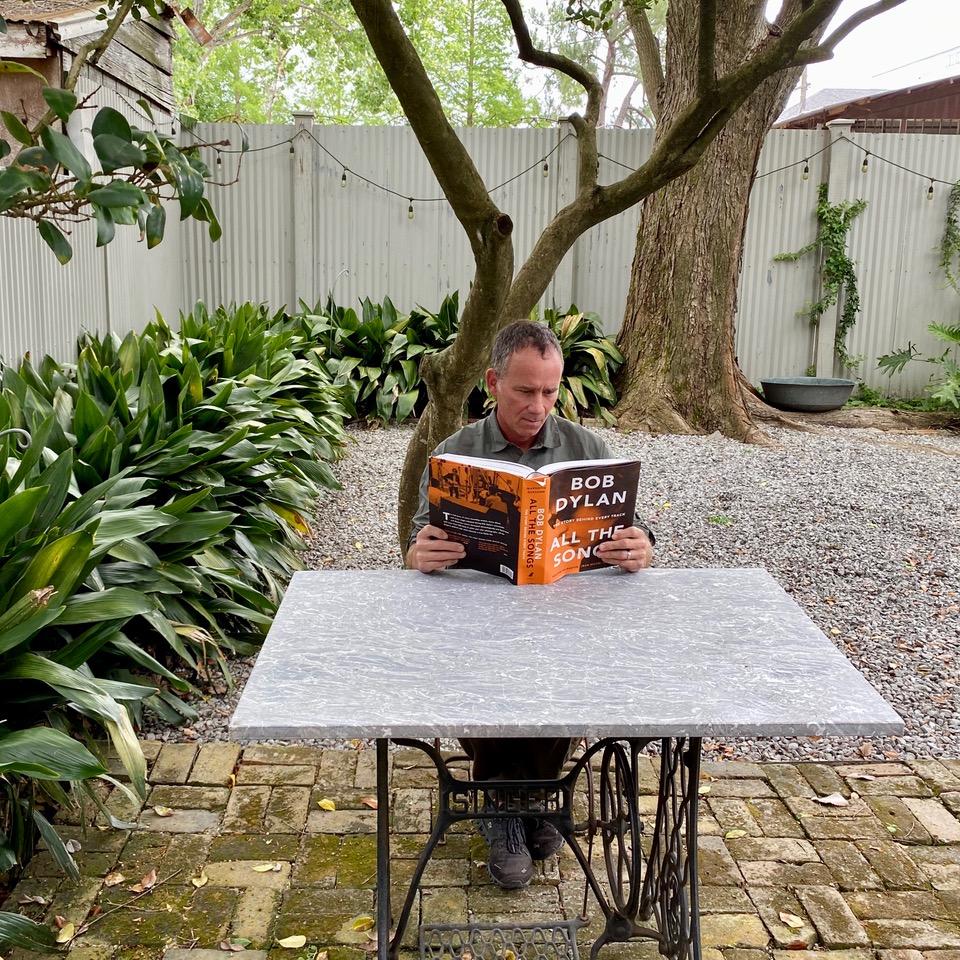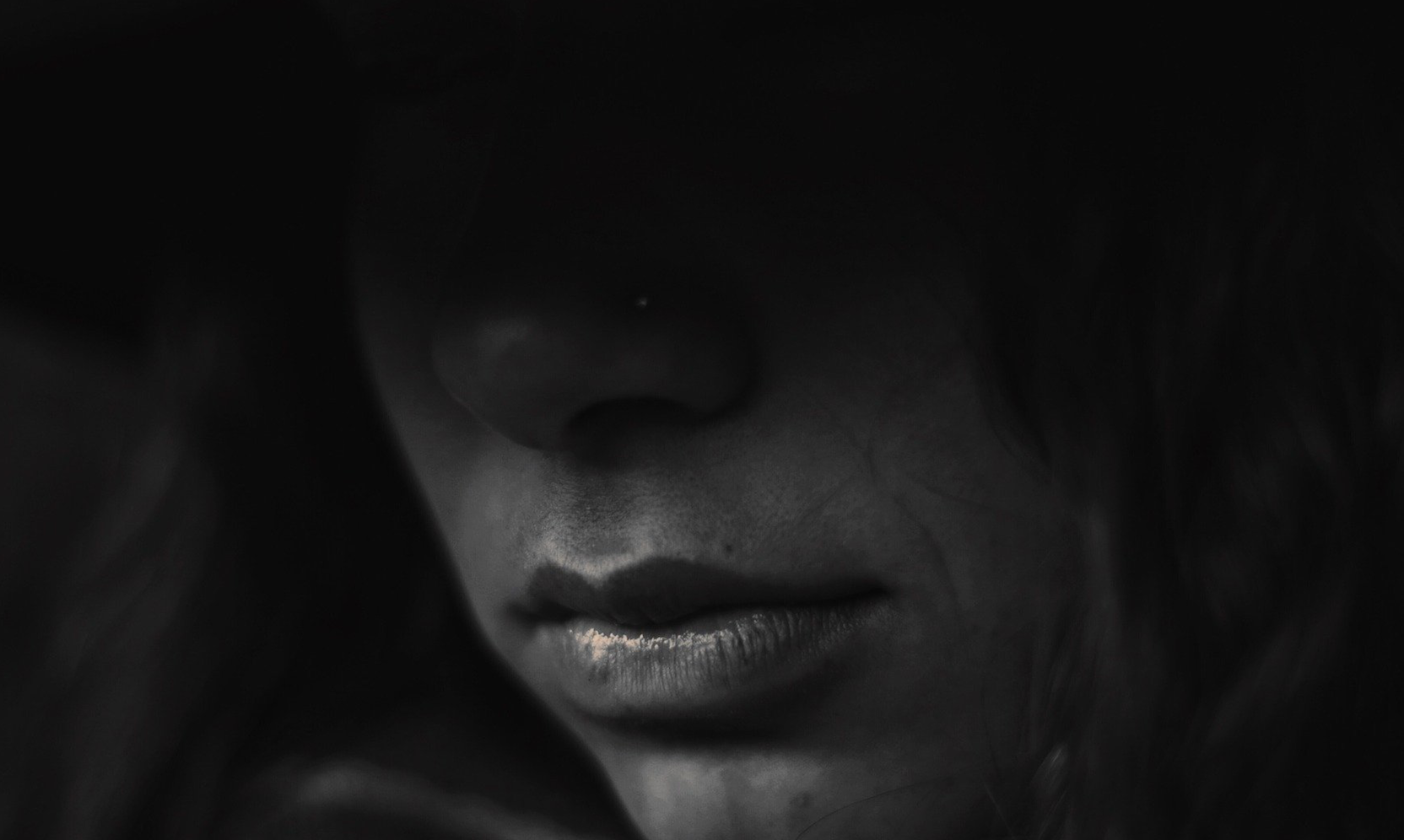By Amelia Fox, Jordyn Freedman, Jude Papillion, and Zachary Siebold
For the entirety of mankind’s existence, humans have gathered with one another to share stories. While storytelling has been used as a method of communication for thousands of years, in today’s high-tech world, storytelling can be used to effectively share messages around the globe in order to help communities learn and grow.
What is storytelling?

The author doing a little light reading in his backyard. (Photo by: Folwell Dunbar)
Storytelling is when someone conveys a story or message with the goal of educating others. It can occur through various mediums, including writing and film.
What is depression?
Depression is one of the most common mental illnesses worldwide. The National Institute of Mental Health characterizes depression as, “a common but serious mood disorder. It causes severe symptoms that affect how you feel, think, and handle daily activities, such as sleeping, eating, or working.”
Common symptoms include irritability, loss of interest in hobbies, experiencing appetite and/or weight changes, difficulty sleeping, and feeling sad, anxious, or hopeless, among others.
An estimated 21 million, or 8.4% of all U.S. adults, suffered from major depression in 2020. However, depression affects more than just those who suffer from it. It also affects those closely related to its victims, including family members, friends, and employers.
Hence is why storytelling is an effective means of explaining and raising awareness about depression.
How does storytelling affect mental health awareness?
A group of Tulane University students spoke with Deanna Robertson, a case manager in Tulane’s Office of Case Management and Victim Support Services, who said depression is more common on college campuses than one may expect and that those impacted with depression and mental illness at Tulane only represent a fraction of college students suffering.
“Now people are naming it a lot more than ten years ago even,” said Robertson. “If you were struggling in school with depression, you might not have named it as depression and people were just like ‘oh you’ll get through it, you’ll get over it.’”
In 2020, 17% of Americans between the ages of 18 and 25 suffered from depression. According to a survey conducted by the Substance Abuse and Mental Health Services Administration, 1.5 million young adults do not receive needed mental health services.

A girl contemplating her life
“There’s a shift, though, of people trying to figure out if this is someone just being ‘lazy’ or not wanting to do anything or if this is someone who’s really struggling,” said Robertson. “But when it comes to how depression impacts our brains and our bodies it’s not just that simple.”
Because depression and other mental health disorders affect a large number of people, learning about the experiences of both victims and others affected by it can lead to a higher number of victims understanding their depression and seeking help for themselves. Therefore, storytelling can be a great way of finding out how certain issues can take a toll on those other than the victims themselves.
Depression is not black and white, and through their interviews, the students at Tulane were able to find a wide variety of stories linked to mental health, and create a video outlining the effects of depression and sharing their experiences.
For mental health resources, visit www.samhsa.gov or call 1-800-662-HELP (4357).
This piece was edited by Jiayi Xu as part of Professor Kelley Crawford’s Digital Civic Engagement course at Tulane University.
 NOLAbeings
Multimedia artist Claire Bangser created NOLAbeings as a portrait-based story project that marries...
NOLAbeings
Multimedia artist Claire Bangser created NOLAbeings as a portrait-based story project that marries...
 Data corner: Adobe Suite (create a PDF, social media graphic, presentation, edit a photo and video
Data corner is where you go to work with analytics and top tech skills. It takes on everything from PERL and SQL to Canva and Sprout Social.
Data corner: Adobe Suite (create a PDF, social media graphic, presentation, edit a photo and video
Data corner is where you go to work with analytics and top tech skills. It takes on everything from PERL and SQL to Canva and Sprout Social.
